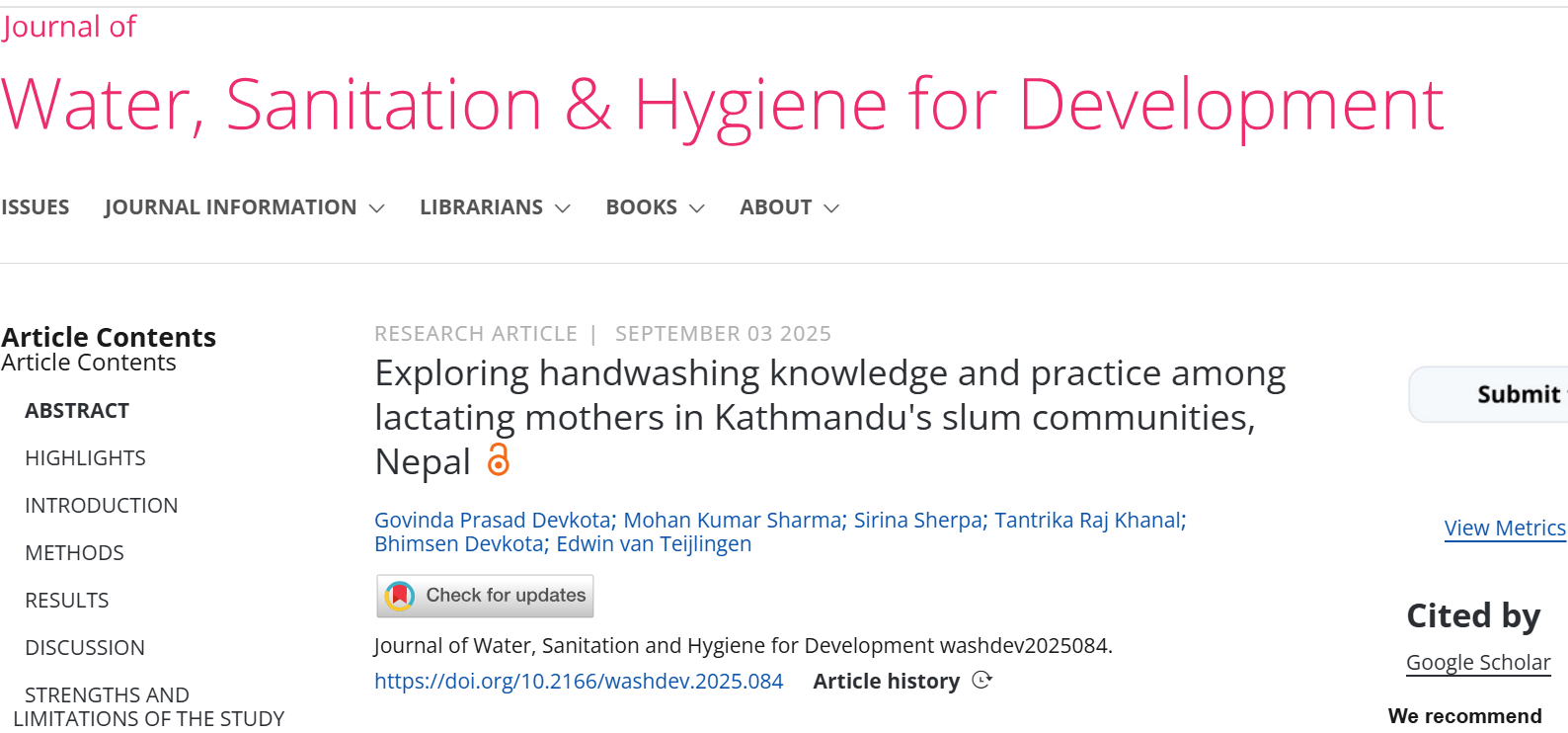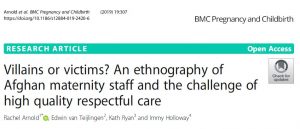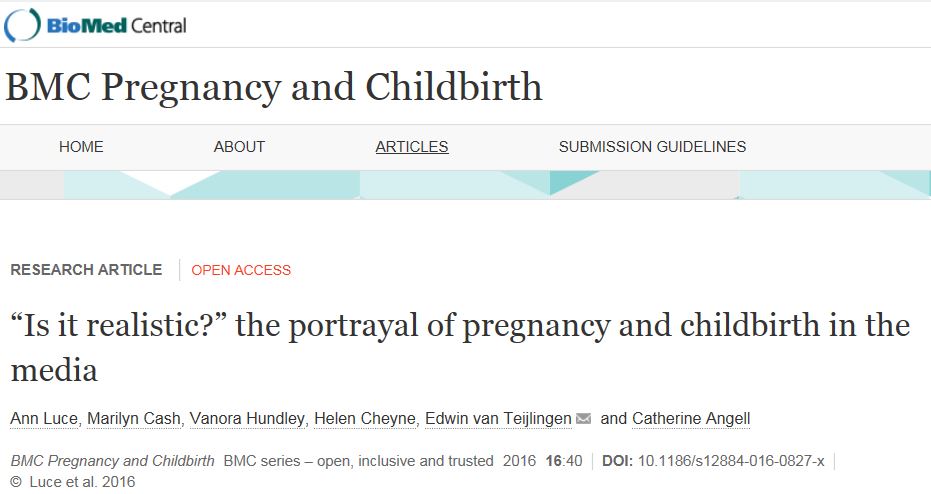We usually post these early on a Monday morning so you can all catch up before you start the week, but we write them on a Friday – these days they can be out of date within 10 minutes, let alone after a weekend. So this week we are going early!
- EU election results will be announced on Sunday. In BCP the turnout was 36%. In Dorset it was 41.2%. While these are not spectacular turnouts, they are higher than some were expecting.
- The PM has announced that she will step down and that the leadership contest will start on 10th June (which means the positioning etc that had already started will now intensify massively and candidates will only start being eliminated formally after 10th June). We have more below.
- And in “legacy” territory – the Augar review may be published next week.
- Expect “ground-softening” over the weekend – probably as painful as it sounds.
Augar rumours – the Review of Post-18 Education and Funding.
The Augar review may be published next week. Remember, it’s the review of an advisory panel. The Department for Education will have to respond (was planned for the Autumn) and it is dependent to a certain extent on the Comprehensive Spending Review (not yet started). Whoever gets the top job may have other priorities than implementing its recommendations. And if whoever gets the top job really messes things up, there might be a general election before the end of the year.
However, once the recommendations are out, it will be very hard to put them back into the box, so hold on to your hats. Personally I’m expecting a very complex and detailed set of recommendations – not just a simple cut to headline tuition fee loan amounts (although that may be the starting point).
Damien Hinds is already positioning. How to read this?
- “universities that are shown to offer a poor economic return for their degrees will not be able to charge £9,250 a year”….” Instead, a lower fee of around £7,500 is expected to be announced by Philip Augar’s review” [note it’s a recommendation not an announcement]
- “the Education Secretary argued that under the current £9,250 a year tuition fee system there is “no distinction” between courses that offer a high return for graduates and the economy and those that do not”…targeting “low value, low quality” university degrees – “the move is likely to crack down on creative arts and media studies courses from lower tariff universities”
So does this mean fees set by subject? But it sounds more complex than that – how do you address the low quality, low value bit of this?
- This could imply an uplift on a £7500 base for the “high value, high quality programmes” within a subject based on a metric linked to either “quality” [defined how?] or outcomes [aka graduate salaries or a basket of outcomes measures?]. If so, let’s hope it is based on data that takes into account background, context (eg geography and the state of the economy) and prior attainment of students, and not just raw salaries.
- Any uplift could be in the form of a government grant or an increased fee cap funded by a tuition fee loan. The latter seems to add a level of complexity for applicants and a set of strange incentives [pay more for sciences] so a government grant/loan to the provider seems more likely – perhaps with further strings attached?
- Or does it mean something else? “he said too many universities were being “incentivised” to expand courses that cost little and offer poor prospects to students in a bid to generate income”
This is the “bums on seats” argument. So that sounds like instead of being based on outcomes, a fee cap might be linked to cost? Probably not, it probably means quality and outcomes again. There will just be [slightly] less incentive to offer these courses and pack the bums onto seats once the fee cap is reduced. This is playing to the proponents of the “too many students are going to universities” argument by linking high volume and low cost to poor quality – which doesn’t necessarily hold true.
- But on top-ups, the article says: “Universities have argued that any cut in tuition fees should be topped up by the Government, but Mr Hinds suggested the sector had not been forced to bear the brunt of cuts as other areas of the public sector had since 2010.” “If you look back since the financial crash in 2007/08…it has been difficult for the public finances. We’ve protected the five to 16 schools budget, we’ve protected the health budget but for everywhere else there have been tight times. For universities they haven’t had that same tough, tight times,” he said.”
So no top ups then? But if that is the case, how is the Minister going to achieve the differentiation that he seems to want? I think this is just an argument against universal top ups – and there will be some, just limited, linked to metrics and with strings attached as described above.
It’s all a bit of a muddle. We may see as early as Sunday….
Grade Inflation
In November 2019 QAA ran a consultation on degree classification and academic standards (here is BU’s response). You can read an analysis of the consultation responses here, and this week the outcome report has been published: Degree Classification transparency, reliability and fairness – a statement of intent. It sets out a statement of intent by which HE institutions will ensure academic standards are protected. It also calls on English universities to publish a degree outcomes statement. The statement should report on an internal institutional review which will self-judge whether the Quality Code and the OfS’ registration conditions relating to qualifications are being met.
A common degree classification framework, which will act as a reference point for providers by describing high-level attributes expected of a graduate to achieve a particular degree, is also in development. The descriptions formed part of the consultation and are currently being refined ready for publication by the UKSCQA in the summer.
Finally the report sets out the sector level actions to ensure the conventions and practices are refreshed and remain current.
Nicola Dandridge, Chief Exec of OfS, welcomed the report and said: “This is a welcome statement of intent which shows that universities recognise the need to ensure that degree standards are maintained, and can be trusted by students and employers alike…Our own research on this issue showed that there has been significant and unexplained grade inflation in recent years. The Office for Students has been clear that measured but decisive action is necessary to ensure that students, graduates and employers have confidence in the manner in which degrees are awarded.”
Brexit and the government….
Well, this is out of date the minute it’s written. The Withdrawal Agreement Bill is now completely irrelevant until after the Tory leadership contest. There is time for one of those and then who knows what before Hallowe’en and the default date for leaving the EU without a deal. Everyone assumes that either a no-deal advocate will win – and ignore the wishes of Parliament and let us default out of the EU – or that whoever wins will have to ask for yet another extension while they sort out a new arrangement or try to persuade the EU to change the backstop etc.
Key EU figures have spoken out against the Conservative leadership squabbles restating that the EU will not reopen negotiations with the new Conservative Prime Minister. Ireland’s deputy PM, Simon Coveney, said: “the personality might change but the facts don’t”. Coveney said: “The danger of course, is that the British system will simply not be able to deal with this issue…even though there’s a majority in Westminster that want to avoid a no-deal Brexit, and that is why over the summer months we will continue to focus significant efforts and financial resources on contingency planning to prepare for that worst case scenario.”
The BBC explain the process here:
- Candidates need two MP proposers to back them for leader;
- Tory MPs then vote and the candidates with the lowest votes are eliminated until two candidates remain;
- A postal vote ballot is then held on these two candidates with the rest of the Tory membership. The winner of this becomes Conservative leader.
Current likely candidates: Jeremy Hunt, Amber Rudd, Liz Truss, Sajid Javid, Boris Johnson, Dominic Raab, Andrea Leadsom, Matt Hancock, Penny Mordaunt, Tom Tugendhat, Michael Gove, Esther McVey, Sir Graham Brady, James Cleverly, Kit Malthouse, Mark Harper, Rory Stewart. A recent YouGov poll reveals Boris Johnson is the most popular Conservative candidate among the party members with a lead of 18 points.
With a change of party leadership and PM we may see some policies being pushed and others dropped. The Times have an interesting piece sharing a survey of 858 Conservative members’ opinion on key manifesto pieces such as same-sex marriage, HS2, economic policy, and avoiding an early general election.
Finally, a cascade reshuffle has been announced to replace Andrea Leadsom:
- Mel Stride,the current Treasury minister, will become leader of the Commons replacing Andrea.
- Jesse Norman, currently the transport minister, will replace Mel Stride as financial secretary to the Treasury and paymaster general.
- Michael Ellis, currently a culture minister, replaces Jesse Norman as transport minister.
- Rebecca Pow joins the government to replace Michael Ellis as culture minister.
T Levels
The Government have announced the package of measures to support employers to deliver T-level industry placements. The T Level placement will be at least 315 hours (approximately 45 days) allowing students to build the knowledge and skills they need in a workplace environment. The package includes:
- New guidance to support employers and providers to offer tailored placements that suit their workplace and the needs of young people. This will include offering placement opportunities with up to 2 employers and accommodating students with part time jobs or caring responsibilities.
- A new £7 million pilot scheme to explore ways to help cover the costs associated with hosting a young person in their workplace such as equipment and protective clothing.
- Bespoke ‘how to’ guides, workshops and practical hands-on support for employers – designed alongside industry bodies to make it as easy as possible for them to offer placements.
T levels begin rolling out in across the first three study areas in September 2020 (digital, education, construction). The announced pilot scheme will start prior to the 2020 roll out. From 2021 Health and Science T levels will be introduced, followed by legal, finance/accounting, engineering and manufacturing, creative and design in 2022. Bournemouth and Poole College are listed as one of only 20 providers who will run the first T level projects. The Government also aims to attract 80 industry experts to teach within the T levels sector.
Education Secretary Damian Hinds said: T Levels represent the biggest shake up to technical education in a generation…Industry placements will provide businesses with an opportunity to attract a diverse range of talent and build the skilled workforce they need for the future. To make a success of T Levels, we need businesses working in partnership with us and colleges. Industry placements will help young people build the confidence and skills they need to get a head start in their careers and they’ll help businesses maximise their talent pipeline for the future.
Matthew Fell, CBI Chief UK Policy Director, said: There has long been a need for an increase in prestigious technical options after GCSEs that parents, teachers, and businesses understand. This package of measures to help employers deliver placements is welcome, because if T Levels are going to be a success they will require long-term commitment from Government. Support will be most needed for small and medium-sized businesses, so special attention should be paid to these firms.
Mature Foundation Year Phenomenon
Last week we told you about how access courses are declining whilst foundation years are on the rise and explored the student outcomes for these differing routes (see here, pages 9-10).
HESA have analysed data from 2010/11 to 2017/18 to find clues about disadvantaged students who undertake a foundation year. Foundation years have taken off in increasing numbers since 2014/15, in particular London sees significant growth in foundation year numbers. Click here for the interactive chart to explore the interactions between disadvantage and young/mature.
The analysis uses the index of multiple deprivation to measure disadvantage and find that across England the number of entrants to a foundation year from the most disadvantaged areas has grown by 7% – making it 32% of the total entrants. However, the effect is greater when only the most disadvantaged mature students are explored up by 12% to 41% of the total entrants. Mature students seem to account for the significant rise in foundation years – it can be seen most prominently in the London only data.
HESA say:
- The Office for Studentshas said that reversing the decline in entry into higher education among mature students and especially those from less privileged backgrounds is a vital part of ensuring more equality in access to higher education. Much of the current debate has been around what modifications are required within part-time study and student finance to help achieve this, given such courses are taken predominantly by older students.
The above narrative suggests that foundation years could also be a useful way of helping disadvantaged mature learners return to study. In both countries, we found that much of the increase in mature entry in recent years is accounted for by a small number of institutions. Hence, future research may wish to explore how these universities have managed to buck the wider trend of decline, as this may improve sector understanding of what is needed to support mature and/or disadvantaged individuals into higher education.
Graduate Outcomes
Wonkhe report on the graduate recruitment company who have published Working with class: The state of social immobility in graduate recruitment. Wonkhe state the report finds over a third of 18-25 year olds are put off joining a business if they perceive the workforce to be made up predominantly of middle and upper-class employees – equating to 2.5 million young people. The report argues that this is costing businesses and the wider economy £270 billion per year. The research also found two thirds (66%) of graduates felt they had to change “who they are” to “make a good impression” during an interview and the majority (64%) said they weren’t able to express themselves as individuals during application processes.
Wonkhe also have an interesting and short blog on what the graduate outcomes metrics aren’t measuring despite the data being available. What about graduate job satisfaction? explores the old DLHE question examining why the graduate chose the job they were doing and the nearest equivalents in the Graduate Outcomes survey which asks whether the graduate’s current activity fits with their future plans, is meaningful, and utilities their degree learning. The author calls for TEF and league table compilers to pay more attention to this richer source of graduate outcome information.
Disadvantage – access, participation and success
A parliamentary question on opening up disadvantage data to support university admissions receives the usual ‘not yet’ response:
Universities: Disclosure of Information
Q – Ben Bradley: To ask the Secretary of State for Education, what discussions he has had with the Office for Students on the transmission of data on applicants’ pupil premium status and ethnicity directly to universities in order to support universities’ work on widening participation and access.
A – Chris Skidmore:
- Widening access and participation in higher education is a priority for the government. This means that everyone with the capability to succeed in higher education should have the opportunity to participate, regardless of their background or where they grew up.
- We have made real progress in ensuring universities are open to all, with record rates of disadvantaged 18-year-olds in higher education. However, we know there is further to go to maximise the potential of the talent out there, so it is vital that we build on this progress.
- Higher education providers need to use good quality and meaningful data to identify disadvantage in order to effectively address disparities in access and participation in higher education. We encourage institutions to use a range of measures to identify disadvantage, including individual-level indicators, area data (such as Participation of Local Areas, Index of Multiple Deprivation or postcode classification from ACORN), school data, intersectional data such as Universities and Colleges Admissions Service’s (UCAS) Multiple Equality Measure, and participation in outreach activities. To this end, we are working with the Office for Students (OfS), UCAS and sector representatives to further explore how we can support universities to improve and enhance access to data.
- We want institutions to consider a broad range of information in their offers, including the context in which a student’s results were achieved. We are committed to helping universities progress in their efforts to improve access and successful participation for under-represented groups.
And while we’re talking of Chris Skidmore, he has had a temporary promotion to cover for Claire Perry, Minister of State for Energy and Clean Growth. Chris will retain his Universities Minister portfolio whilst attending Cabinet on Claire’s behalf.
Minimum salary threshold
Politics Home reports that Home Secretary, Sajid Javid, will remove the £30,000 minimum salary threshold for EU migrants wishing to work within the UK. All media sources are drawing on a letter than The Sun obtained in which Sajid wrote to the Migration Advisory Committee (MAC) recommending they reconsider the wage threshold and address regional wage discrepancies. The Sun report Sajid also said he wants EU migrants to receive exemptions for a range of professions and for new entrants and inexperienced works to be paid less.
The MAC’s £30k policy brought the wage requirement for EU in line with that required to be achieved by international migrants and said it would also help to boost wages for UK workers. Prior to the £30k policy announcement (see Immigration white paper, Dec 2018) it was reported that there was heated opposition to the policy in the cabinet from both the Chancellor and the Business Secretary (Greg Clark). As a concession to the opposition it was agreed the Minister (Sajid Javid) would consult with business on the final level of the salary threshold. Politics Home state: “Saj is basically telling the MAC to go away and do their work all over again. He knows Theresa is off and he’s cashing in.”
The leaked letter states: “The Government is committed to engaging extensively over the course of this year before confirming the level of the minimum salary threshold.” It is believed the MAC are due to reopen the salary threshold discussions and report back to Sajid Javid at the end of 2019.
Apprenticeships
The Public Accounts Committee have published a progress review on the apprenticeships programme, raising concerns over low take-up, unambitious targets and poor-quality training.
It argues that the DfE has failed to make the predicted progress when launching apprenticeship reforms in 2017. The number of apprenticeship starts fell by 26% after the apprenticeship levy was introduced and, although the level is now recovering, the government will not meet its target of 3 million starts by March 2020. The committee moreover concludes that the department’s focus on higher-level apprenticeships and levy-paying employers increases the risk that minority groups, disadvantaged areas and smaller employers may miss out on the benefits that apprenticeships can bring.
The report also finds that the Department underspent the programme’s budget by 20% in 2017-18, but employers’ preference for higher-cost apprenticeships means that the programme is expected to come under growing financial pressure in the coming years.
Other news
Smart dorms: Accommodation provider UPP are considering trialling new technology and research initiatives as part of a smart property technology push. UPP said: “We have an aspiration to create smart communities within our bedrooms and our accommodation, and we want to support universities’ smart agendas…One of the ideas that we’re following at UPP is, how can we get virtual assistants into our rooms? How can we use smart technology in the lights and so on?” UPP state that students want more control over their accommodation, such as how much energy they use, and that new technology could help monitor student wellbeing, for example registering how often students leave their rooms. They are encouraging suppliers to see university accommodation as a “testbed for…their new gadgets”, which could help keep down costs for students renting the rooms. Research Professional have the full article here.
FE funding: Education Select Committee Chair Robert Halfon joins the call for FE providers to be funded fairly. Writing in Politics Home he states:
- When delivered well, skills, education and apprenticeships provide a ladder of opportunity that allows anyone, no matter what their background, the opportunity to secure jobs, prosperity and security for their future. This is important for two reasons: to address social injustices in our society and to boost productivity in our country. Getting this right benefits everyone, and colleges are the vanguard in our fight to achieve this.
- Despite delivering fantastic outcomes for their learners and meeting our skills needs, colleges get a raw deal in funding terms. According to the IFS, 16-18 education “has been the biggest loser”, with spending per student falling by eight per cent in real terms since 2010/2011. For too long, Further Education has been considered the ‘Cinderella Sector’.
The Education Select Committee has been: examining the potential for a long term, ten-year vision for education investment that recognises the vital contribution from our colleges…The benefit that colleges bring to individuals, communities and our country transcends party politics and referendum lines.
Antisemitism: Universities were reminded of their responsibilities to tackle religious-based hate at the end of last week. This Government news story tells of potential indirect discrimination after a University Jewish society was expected to fund a £2,000 security bill to run an event.
Careers Hubs: Dorset LEP has been successful in a bid to establish a Careers Hub. In 2018 Careers Hubs were trialled through first wave providers who reported over performance against the measured careers education targets:
- outperforming the national average on all 8 Gatsby Benchmarks of good careers guidance;
- 58% of Careers Hubs provide every student with regular encounters with employers;
- 52% provided every student with workplace experience (work experience, shadowing or workplace visits).
- Improvements were strongest in disadvantaged regions.
The press release describes the Careers Hub model:
Careers Hubs bring together schools and colleges with employers, universities, training providers and career professionals to improve outcomes for young people. There is a focus on best practice and schools and colleges have access to support and funding, including an expert Hub Lead to help coordinate activity and build networks, a central fund to support employer engagement activities, and training for a Careers Leader in each school and college. Employers are vital to the Hub model’s success, with all Hubs required to demonstrate strong engagement amongst local businesses and a clear plan for increasing employer engagement
Carolyn Fairbairn, Director General of the CBI, said:“Firms can sometimes struggle to engage with the schools and colleges that need their support. It’s therefore hugely encouraging to see more Careers Hubs on the way. There is no doubt they will play a pivotal role in helping employers get more involved.”
Poverty: The Special Rapporteur on extreme poverty and human rights, Philip Alston, published his final report into extreme poverty and human rights (including taking account of 300 written consultation responses). You can read the full report here, or you can contact Policy for a shorter summary and recommendations if this topic is of interest. The report sets out a bleak picture of poverty levels in the UK and draws a direct parallel between the rise in poverty and the Government’s austerity agenda:
“Close to 40 per cent of children are predicted to be living in poverty by 2021. Food banks have proliferated; homelessness and rough sleeping have increased greatly; tens of thousands of poor families must live in accommodation far from their schools, jobs and community networks; life expectancy is falling for certain groups; and the legal aid system has been decimated”
“The bottom line is that much of the glue that has held British society together since the Second World War has been deliberately removed and replaced with a harsh and uncaring ethos.”
The Government have responded pushing back on the report calling it a “barely believable documentation of Britain” and stating that “all the evidence shows that full-time work is the best way to boost your income and quality of life.”
Industrial Strategy: The 5 universities in the West Midlands have jointly published a report raising awareness of the value and contribution they make to the Government’s Industrial Strategy. Deborah Cadman, CEO of the West Midlands Combined Authority, said: “The West Midlands is the first region to work with the UK Government to develop a Local Industrial Strategy and the region’s universities are at the forefront of the vital link between innovation and industry. Their research and development reaches far beyond the laboratory and lecture theatres. By driving the local economy and improving everyone’s lives, they are already addressing the UK’s future challenges.”
Subscribe!
To subscribe to the weekly policy update simply email policy@bournemouth.ac.uk
JANE FORSTER | SARAH CARTER
Policy Advisor Policy & Public Affairs Officer
Follow: @PolicyBU on Twitter | policy@bournemouth.ac.uk

























 REF Code of Practice consultation is open!
REF Code of Practice consultation is open! BU Leads AI-Driven Work Package in EU Horizon SUSHEAS Project
BU Leads AI-Driven Work Package in EU Horizon SUSHEAS Project Evidence Synthesis Centre open at Kathmandu University
Evidence Synthesis Centre open at Kathmandu University Expand Your Impact: Collaboration and Networking Workshops for Researchers
Expand Your Impact: Collaboration and Networking Workshops for Researchers ECR Funding Open Call: Research Culture & Community Grant – Apply now
ECR Funding Open Call: Research Culture & Community Grant – Apply now ECR Funding Open Call: Research Culture & Community Grant – Application Deadline Friday 12 December
ECR Funding Open Call: Research Culture & Community Grant – Application Deadline Friday 12 December MSCA Postdoctoral Fellowships 2025 Call
MSCA Postdoctoral Fellowships 2025 Call ERC Advanced Grant 2025 Webinar
ERC Advanced Grant 2025 Webinar Update on UKRO services
Update on UKRO services European research project exploring use of ‘virtual twins’ to better manage metabolic associated fatty liver disease
European research project exploring use of ‘virtual twins’ to better manage metabolic associated fatty liver disease